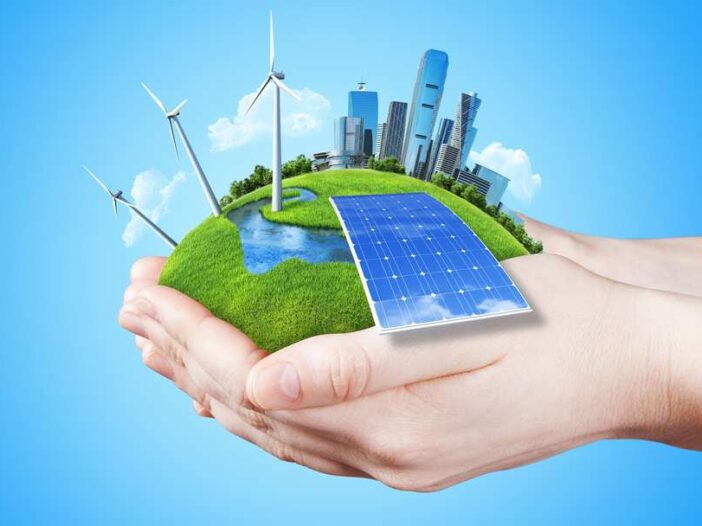Environmentalists really are their own worst enemy. Just when they’ve managed to prevent carbon emissions-free nuclear power from becoming our dominant source of energy, they discover that carbon emissions are the next big threat on their agenda.
Just when they seem to have saved the whales, their favoured offshore wind turbines are accused of beaching them.
Just when they’ve established Germany’s Energiewende as their idol, Germany’s energy system fails miserably and the country demolishes a wind farm to get at the coal underneath.
Just when they succeeded in preventing hydropower projects because they swamp the environment, pumped hydro becomes the national energy storage project designed to make intermittent renewable power plausible. And just when environmentalists come around to that idea, the project’s costs are revised upwards more than six-fold…
Just when they’ve completed their list of toxic chemicals and refining practices, driving them overseas, they discover their favourite green tech relies on those chemicals.
Just when they manage to put the mining industry into a straightjacket of environmental regulations, they discover their favourite forms of renewable energy are incredibly resource intensive to build.
It’s that last one I want to focus on today…
My problem is not with the mining, nor with saving the planet. It’s the fact that the two seem a little contradictory to me, if you pursue them for the same reasons.
Not to mention the incredible energy intensity of mining in the first place. In fact, I’m not convinced a wind turbine produces enough energy to build a wind turbine, once you include all the energy expended in exploration, development, mining, processing, manufacturing and installation of building the thing.
Perhaps we’d be better off pursuing other avenues that both cut pollution and don’t deface vast swathes of the planet to do it?
But such political U-turns are only possible once things are desperate and failure is painfully obvious. Which you and I might’ve thought was a few months ago. But not so, according to Canberra. This absolute cracker from the Australian Financial Review had me in fits:
‘The Albanese government will adopt a new definition for ‘critical minerals’ influenced by the needs of Australia’s defence and trade partners, in a move that could drive domestically abundant commodities such as coking coal, bauxite and iron ore onto the list.’
Yes, we must add coal to a list of ‘critical minerals’ because it’s crucial for ‘decarbonisation infrastructure’!
But the Resources Minister Madeleine King went even further: ‘Ms King said she worried that activism targeting gas and mining projects would put the energy transition at risk.’ Yes, fossil fuels are now needed…for the energy transition…which makes them a good thing.
All of this comes on the back of Australia being so desperate for coal that it compelled coal miners to sell some of their output to Australian coal power plants — that’s how critical the mineral is.
Ironically enough, I think the government has got this right…in a sense. Turning Australia into the world’s green energy transition mine makes good economic sense, anyway. But that list of ‘critical minerals’ is getting a bit long, isn’t it? Why don’t we just get rid of all the stupid constraints on mining, rather than exempting certain minerals from some of the ridiculous regulations by classifying them as ‘critical’.
Indeed, I don’t think you’ll be able to find a mineral which isn’t ‘critical’ once enough lobbyists and environmentalists get involved.
But back to the real argument here. Why are we digging up the planet to save it? Since when is nuclear power more environmentally damaging than the incredible amount of mining needed to build the renewable energy plants and infrastructure it needs?
If you ask me, the electrification of the global car fleet alone would require more metal than the global mining industry can provide without digging up half of South America. This won’t leave much for renewable energy creation and infrastructure. And, if you evade nuclear, you need all three to go carbon neutral.
The UK’s Natural History Museum did the maths for the UK’s car fleet back in 2019, before environmentalists began to admit we’ll have to share cars in the future:
‘If we wanted to replace all [the UK’s vehicles] with electric vehicles today (assuming they use the most resource-frugal next-generation batteries), it would take the following:
- 207,900 tonnes of cobalt — just under twice the annual global production
- 264,600 tonnes of lithium carbonate (LCE) — three quarters the world’s production
- at least 7,200 tonnes of neodymium and dysprosium — nearly the entire world production of neodymium
- 2,362,500 tonnes of copper — more than half the world’s production in 2018
‘Even if we only wanted to ensure an annual supply of electric vehicles, from 2035 as pledged, the UK would need to annually import the equivalent of the entire annual cobalt needs of European industry.
‘What about the rest of the world?
‘Now let’s think beyond the UK. At the moment, there are about a billion cars in the world. By 2050, there will be two billion.
‘Based on 2018 figures, experts have worked out that for those two billion cars to be electric, annual production of neodymium and dysprosium would have to increase by 70%, copper output would need to more than double and cobalt output would need to increase at least three and a half times for the entire period from now until 2050 to satisfy the demand.’
That’s a lot of mining, just for electric cars. Add in the resource demands of energy infrastructure and power plants and you get…environmental degradation.
Environmental degradation which the Australian government is holding up as a paragon of…environmentalism. We’re sacrificing the Australian environment so that other countries can have enough iron ore and coal to save the environment…
It begs the question, who is being most cynical and deceptive? Is it the countries which are building incredibly resource intensive renewable power infrastructure, using resources and manufacturing facilities from outside their borders so as not to ruin their environment with mining and emissions?
Is it the big companies that virtue signal about their green credentials, while knowing their carbon offsets are nothing but hot air and their renewables programs are only going to be abandoned in the end?
Is it the Australian government for agreeing to be the world’s mining site?
Is it the environmentalists who hold out against the obvious solution — nuclear power?
Quite frankly, it requires them all to participate in this charade. And only one must call out that the emperor’s clothes are made of oil anyway.
Regards,
 |
Nickolai Hubble,
Editor, The Daily Reckoning Australia Weekend

